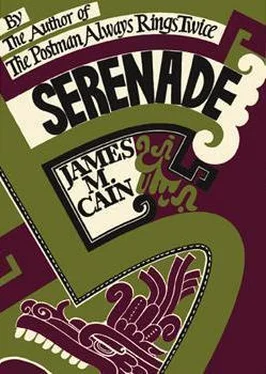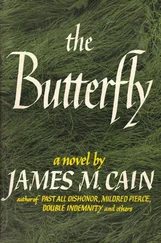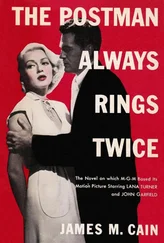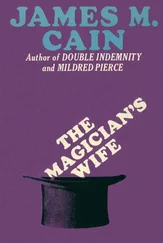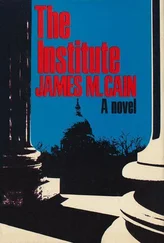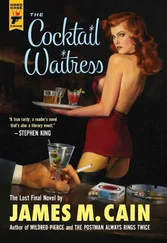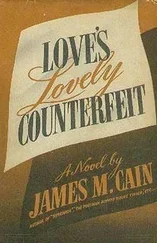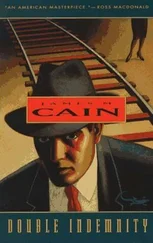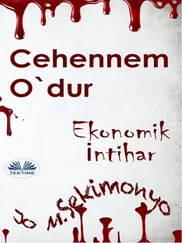And then one morning I got this letter, all neatly typewritten, even down to the signature, on a sheet of white business paper.
Calle Guauhtemolzin 44b,
Mexico, D. F.
A 14 de agosto.
Sr. John Howard Sharp,
Hotel Domínguez,
Calle Violeta,
Ciudad.
Mi Querido Jonny:
En vista de que no fue posible verte ayer en el mercado al ir a las compras que ordinariamente hago para la casa en donde trabajo, me veo precidada para dirigirte la presente y manifestarte que dormí inquieta con motivo de tus palabras me son vida y no pudiendo permanecer sin contacto contigo te digo que hoy por la noche te espero a las ocho de la noche para que platiquemos, por lo que así espero estaras presente y formal.
Se despide quien te ama de todo corazón y no te olivida,
JUANA MONTES
How she got my name and address didn’t bother me. The waitress at the Tupinamba would have been good for that. But the rest of it, the date I was supposed to have with her yesterday, and how she couldn’t sleep for thinking about me, didn’t make any sense at all. Still, she wanted to see me, that seemed to be the main point, and it was a long time before sundown. I was down past the point where I cared how she had looked at me, or what it meant, or anything like that. She could look at me like I was a rattlesnake, for all I cared, so she had a couple of buns under the bed. I went back upstairs, shaved, and started up there, hoping something about it might lead to a meal.
When I rapped on the door the window opened, and the fat one poked her head out. The four of them were just getting up. The window closed, and Juana called something out to me. I waited, and pretty soon she came out. She had on a white dress this time, that must have cost all of two pesos, and white sock-lets, and shoes. She looked like some high school girl in a border town. I said hello and how had she been, she said very well, gracias , and how had I been? I said I couldn’t complain, and edged toward the door to see if I could smell coffee. There didn’t seem to be any. Then I took out the letter and asked her what it meant.
“Yes. I ask you to come. Yes.”
“I caught that. But what’s all this other stuff about? I didn’t have any date with you — that I know of.”
She kept studying me, and studying the letter, and hungry as I was, and bad as she had walloped me that night, and dumb as it had been up to now, I couldn’t help having this same feeling about her I had had before, that was mainly what any man feels toward a woman, but partly what he feels toward a child. There was something about the way she talked, the way she held her head, the way she did everything, that got me in the throat, so I couldn’t breathe right. It wasn’t child, of course. It was Indian. But it did things to me just the same, maybe worse on account of it being Indian, because that meant she was always going to be like that. The trouble was, you see, that she didn’t know what the letter said. She couldn’t read.
She called the fat one out, and had her read it, and then there was the most indignant jabbering you ever heard. The other two came out and got in it, and then she grabbed me by the arm. “The auto. You make go, yes?”
“Well I could once.”
“Come, then. Come quick.”
We went down the street, and she turned in at a shack that seemed to be a kind of a garage. It was full of wrecks with stickers pasted on the windshield, that seemed to be held for the sheriff or something, but halfway down the line was the newest, reddest Ford in the world. It shone like a boil on a sailor’s neck. She went up to it, and began waving the letter in one hand and the key in the other. “So. Now we go. Calle Venezuela.”
I got in, and she got in, and it was a little stiff, but it started, and I rolled it through the murk to the street. I didn’t know where the Calle Venezuela was, and she tried to show me, but she didn’t have the hang of the one-way streets, so we got tangled up so bad it took us a half hour to get there. As soon as I backed up to park she jumped out and ran over to a colonnade, where about fifty guys were camped out on the sidewalk, back of tables with typewriters on them. They all wore black suits. In Mexico, the black suit means you got plenty of education, and the black fingernails mean you got plenty of work. When I got there, she was having an argument with one guy, and after a while he sat down to his machine, stuck a piece of paper in it, wrote something, and handed it to her. She came over to me waving it, and I took it. It was just two lines, that started off “Querido Sr. Sharp” instead of “Querido Jonny,” and said she wanted to see me on a matter of business.
“This letter, big mistake.”
She tore it up.
Well, never mind the fine points. The result of the big Socialist educational program is that half the population of the city have to come to these mugs to get their letters written, and that was what she had done. But the guy had been a little busy, and didn’t get it quite straight what she had said, and fixed her up with a love letter. So of course, she had to go down there and get what she had paid for. I didn’t blame her, but I still didn’t know what she wanted, and I was still hungry.
“The auto — you like, yes?”
“It’s a knockout.” We were coming up the Bolivar again, and I had to keep tooting the horn, according to law. The main thing they put on cars for Mexican export is the biggest, loudest horn they can find in Detroit, and this one had a double note to it that sounded like a couple of ferryboats passing in an East River fog. “Your business must be good.”
I didn’t mean to make any crack, but it slipped out on me. If it meant anything to her at all, she passed it up.
“Oh no. I win.”
“How?”
“The billete . You remember?”
“Oh. My billette?”
“Yes. I win, in lotería . The auto, and five honnerd pesos. The auto, is very pretty. I can no make go.”
“Well, I can make it go, if that’s all that’s bothering you. About those five hundred pesos. You got some of them with you?”
“Oh yes. Of course.”
“That’s great. What you’re going to do is buy me a breakfast. For my belly — muy empty. You get it?”
“Oh, why you no say? Yes, of course, now we eat.”
I pulled in at the Tupinamba. The restaurants don’t open until one o’clock, but the cafés will take care of you. We took a table up near the corner, where it was dark and cool. Hardly anybody was in there. My same old waitress came around grinning, and I didn’t waste any time. “Orange juice, the biggest you got. Fried eggs, three of them, and fried ham. Tortillas. Glass of milk, frío , and café con crema.”
“ Bueno.”
She took iced coffee, a nifty down there, and gave me a cigarette. It was the first I had had in three days, and I inhaled and leaned back, and smiled at her. “So.”
“So.”
But she didn’t smile back, and looked away as soon as she said it. It was the first time we had really looked at each other all morning, and it brought us back to that night. She smoked, and looked up once or twice to say something, and didn’t, and I saw there was something on her mind besides the billete . “So — you still have no pesos?”
“That’s more or less correct.”
“You work, no?”
“I did work, but I got kicked out. Just at present, I’m not doing anything at all.”
“You like to work, yes? For me?”
“... Doing what?”
“Play a guitar, little bit, maybe. Write a letter, count money, speak Inglés , help me, no work very hard, in Mexico, nobody work very hard. Yes? You like?”
“Wait a minute. I don’t get this.”
Читать дальше
